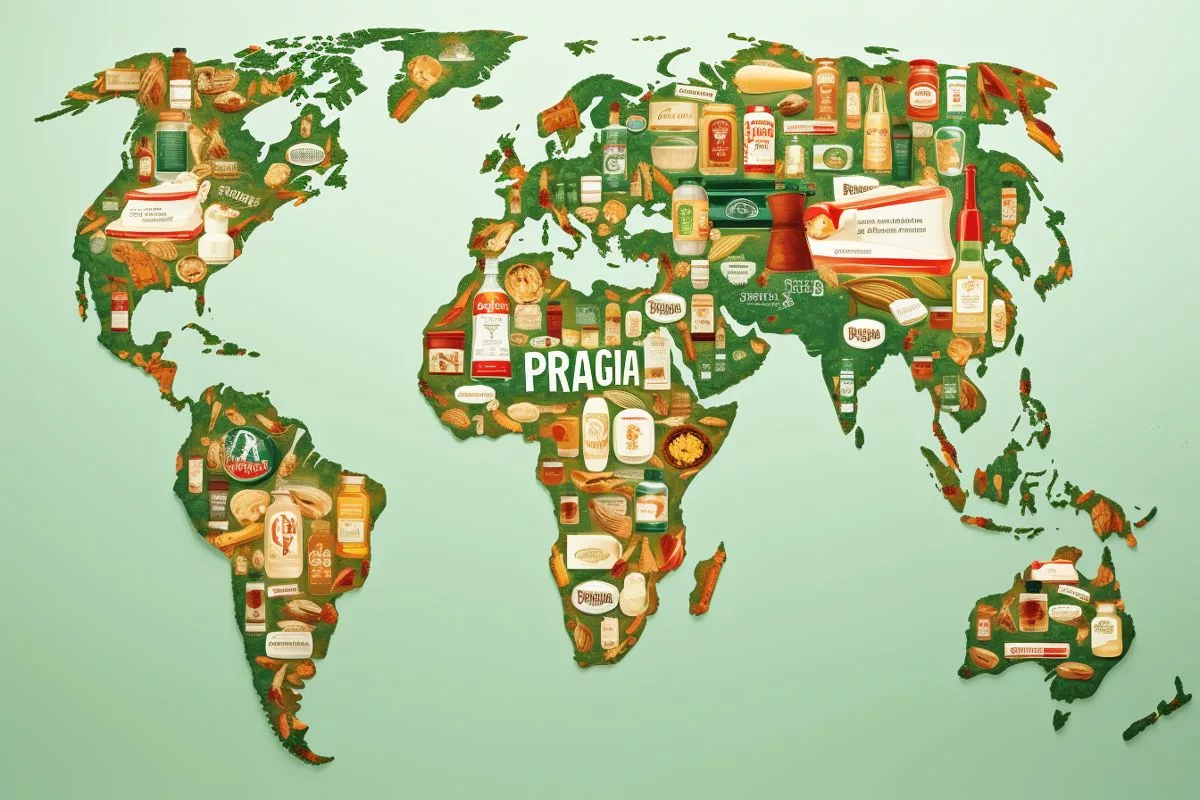Procter & Gamble has expanded its operations in South Africa with the inauguration of a cutting-edge production line in Kempton Park. The move is aligned with the country’s investment objectives and supports sustainable and inclusive growth. P&G has had a significant presence in Africa for over 50 years, with manufacturing facilities in several countries, and is dedicated to increasing small business participation in its value chains, waste reduction, skills development, and women’s empowerment. The inauguration of the Pampers Premium Care production line is a key milestone in P&G’s ongoing efforts to expand its local presence through local sourcing, job creation, technological advancement, and sustainability.
What is P&G’s expansion in South Africa?
P&G recently inaugurated a cutting-edge production line in Kempton Park, Ekurhuleni, in alignment with South Africa’s investment objectives. P&G’s investments contribute to the country’s reindustrialization and support sustainable and inclusive growth. The multinational corporation has maintained a significant presence in Africa for over 50 years, with manufacturing facilities in several African countries. P&G’s ongoing engagement with the South African community includes increased participation of small businesses in its value chains, waste reduction, skills development, and women’s empowerment.
President Cyril Ramaphosa Inaugurates P&G’s Innovative Facility
In a significant development for the South African economy, President Cyril Ramaphosa recently presided over the inauguration of Procter & Gamble’s (P&G) cutting-edge production line in Kempton Park, Ekurhuleni. This milestone highlights the country’s continuous efforts to secure investment, broaden its manufacturing foundation, and extend its reach into the African market.
The launch event took place alongside the 20th AGOA Forum, an occasion that highlights the potential of the African continent to the United States and the international community. With more than 500 companies showcasing their merchandise and services, the forum facilitated productive discussions among government, private sector, labor, and civil society.
P&G has maintained a significant presence in Africa for over 50 years, with manufacturing facilities in South Africa, Nigeria, Kenya, Egypt, and Morocco, as well as distribution networks in over 45 countries. The multinational corporation is associated with well-known household brands in South Africa, such as Vicks, Old Spice, Gillette, Oral B, and Pampers.
Aligning Investments with South Africa’s Goals
P&G’s investments are in line with South Africa’s bold investment objectives and the pledges made during the five South Africa Investment Conferences held since 2018. The Pampers Premium Care production line’s inauguration is the most recent in a series of projects that have helped P&G deliver on its investment commitments.
Through its investments in South Africa, P&G plays a role in the country’s reindustrialization and supports the national drive for sustainable and inclusive growth. The COVID-19 pandemic has highlighted the need for companies worldwide to diversify their supply sources, and South Africa is well-positioned to capitalize on this change in global supply chains.
South Africa offers considerable untapped potential as an investment destination and serves as a crucial gateway to the African market. The African Continental Free Trade Area, once operational, will create new opportunities for establishing export markets, enhancing regional value chains, and improving the overall ease of doing business on the continent.
P&G’s Local Impact and Community Engagement
Within this context, P&G’s ongoing engagement in South Africa is especially significant. The company has been proactive in increasing the participation of small South African businesses in its value chains and promoting local sourcing. Furthermore, P&G’s dedication to waste reduction, skills development, and the creation of more roles for women within the organization is praiseworthy.
In an effort to reinforce its connection to the South African community, P&G has also collaborated with government departments to broaden access to menstrual hygiene products and support Early Childhood Development centers. These partnerships demonstrate P&G’s dedication to South Africa and the African continent as a whole.
As the South African government continues to back P&G’s efforts to expand its local presence through local sourcing and contribute to job creation, technological advancement, and sustainability, the inauguration of the Pampers Premium Care production line signifies an important milestone.
A Key Step Towards African Self-Sufficiency
In summary, this advancement marks a crucial step towards achieving the goal of African manufacturers supplying high-quality products to African markets. It also signals the rise of the African continent as the upcoming frontier of global production, catering to the needs of its people and those worldwide.
What is the significance of President Cyril Ramaphosa’s inauguration of P&G’s cutting-edge production line in South Africa?
President Cyril Ramaphosa’s inauguration of Procter & Gamble’s (P&G) cutting-edge production line in Kempton Park, Ekurhuleni, highlights the country’s continuous efforts to secure investment, broaden its manufacturing foundation, and extend its reach into the African market. P&G’s investments are aligned with South Africa’s investment objectives and support sustainable and inclusive growth.
How long has P&G maintained a presence in Africa?
P&G has maintained a significant presence in Africa for over 50 years, with manufacturing facilities in several African countries, including South Africa, Nigeria, Kenya, Egypt, and Morocco, as well as distribution networks in over 45 countries.
What are some of the well-known P&G household brands in South Africa?
P&G is associated with well-known household brands in South Africa, such as Vicks, Old Spice, Gillette, Oral B, and Pampers.
How does P&G’s investment in South Africa support the country’s reindustrialization and growth goals?
P&G’s investments in South Africa contribute to the country’s reindustrialization and support the national drive for sustainable and inclusive growth. P&G is dedicated to increasing small business participation in its value chains, waste reduction, skills development, and women’s empowerment.
How does P&G engage with the South African community?
P&G has been proactive in increasing the participation of small South African businesses in its value chains and promoting local sourcing. P&G is also dedicated to waste reduction, skills development, and the creation of more roles for women within the organization. In addition, P&G has partnered with government departments to broaden access to menstrual hygiene products and support Early Childhood Development centers.
What is the significance of P&G’s expansion in South Africa in the context of global supply chains?
The COVID-19 pandemic has highlighted the need for companies worldwide to diversify their supply sources, and South Africa is well-positioned to capitalize on this change in global supply chains. P&G’s investments in South Africa are in line with this trend, and the country offers considerable untapped potential as an investment destination and serves as a crucial gateway to the African market.
What is the African Continental Free Trade Area, and how does it relate to P&G’s investment in South Africa?
The African Continental Free Trade Area, once operational, will create new opportunities for establishing export markets, enhancing regional value chains, and improving the overall ease of doing business on the continent. P&G’s investment in South Africa is well-positioned to take advantage of the opportunities presented by the African Continental Free Trade Area.
What is the significance of P&G’s inauguration of the Pampers Premium Care production line in South Africa?
The inauguration of the Pampers Premium Care production line is a key milestone in P&G’s ongoing efforts to expand its local presence through local sourcing, job creation, technological advancement, and sustainability. This advancement marks a crucial step towards achieving the goal of African manufacturers supplying high-quality products to African markets and signals the rise of the African continent as the upcoming frontier of global production, catering to the needs of its people and those worldwide.








